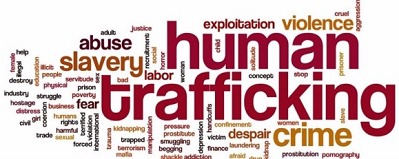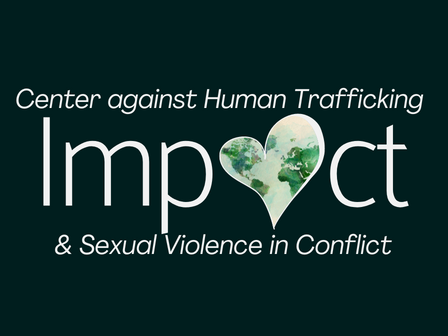Impact’s (On Campus) Summer School (i.c.w. Maastricht University):

General information
(registration for this course is dealt with by Maastricht Summer School directly)
Overview
Description
All around the world, numerous men, women, boys and girls suffer the harsh consequences of human trafficking and sexual violence in conflict. Thousands of people are forced into sexual slavery during conflict-situations, and/or, when fleeing conflict, are forced by human traffickers into exploitative practices en route and in the country of destination. One only needs to watch the news about what is happening today in, for example, Syria, Central African Republic, South Sudan, Ukraine, and in the wake of the refugee crisis in Europe, to see that these practices are ever present. Both phenomena are crimes that affect the physical and psychological integrity of human beings, communities and societies at large.
Although both human trafficking and sexual violence in conflict are at times looked upon separately, there are many similarities to be found. One can think of the sexual nature that can be found in both crimes, the taboos and stigmas surrounding both crimes, the difficulty in defining the crimes, the focus on law enforcement (prosecution) rather than on prevention, prosecutorial challenges (e.g. protection, secondary victimization, reliance on victims’ testimonies), lack of comprehensibly understanding victims’ rights and needs, misconceptions about perpetrators and victims, and the fluidity of victim- and perpetrator roles, the consequences of both crimes (e.g. trauma, children born as a result), the causes and purposes of the crimes, to name a few.
The UN Secretary General in its report on conflict-related sexual violence of 15 April 2017 for the first time reported about the link between conflict-related violence and trafficking in persons. It was held that the term conflict-related sexual violence also encompasses trafficking in persons when committed in situations of conflict for the purpose of sexual violence/exploitation. In Resolution 2331 (2016) of 20 December 2016 of the UN Security Council was, moreover, the nexus between human trafficking, sexual violence, terrorism and transnational organized crime for the first time addressed. With this resolution sexual violence as a tactic of terrorism was officially acknowledged. In looking at both human trafficking and sexual violence in conflict – both in their own right and together – a contribution is made to better understand the opportunities and challenges involved and to find ways forward in addressing these timely crimes.
Goals
At the end of this course, participants will be able to:
• identify and describe the phenomena of human trafficking and sexual violence in conflict;
• identify, analyse and critically assess the differences and overlap between the crimes of human trafficking and sexual violence in conflict;
• identify, analyse and critically assess the opportunities, challenges and ways forward in addressing human trafficking and sexual violence in conflict through legal and non-legal mechanisms, including from a victim’s perspective.
Prerequisites
Applicants must be BA or MA students (from any discipline) who have, at a minimum, a profound interest in the phenomena of human trafficking and sexual violence in conflict and have proficient knowledge of English. Further, applicants are expected to participate actively throughout the course.
Teaching methods
▪ Assignments
▪ Lectures
▪ Papers
▪ PBL
▪ Presentations
▪ Research
▪ Work in subgroups
Assessment methods
▪ Assignment
▪ Attendance
▪ Final paper
▪ Presentation
Coordinators
Dr. mr. A. de Brouwer
Dr. mr. drs. E. de Volder
For more background information of the lecturers, see:
impact-now.org/about-us/#team

